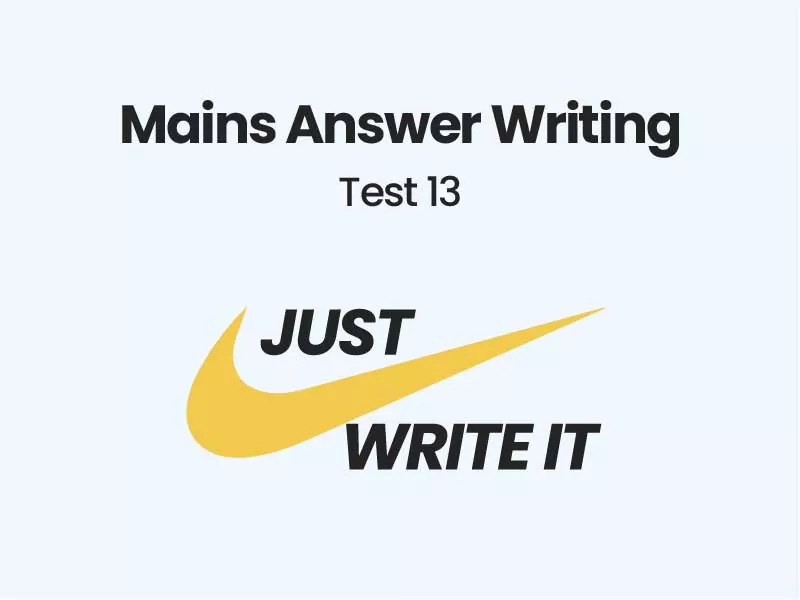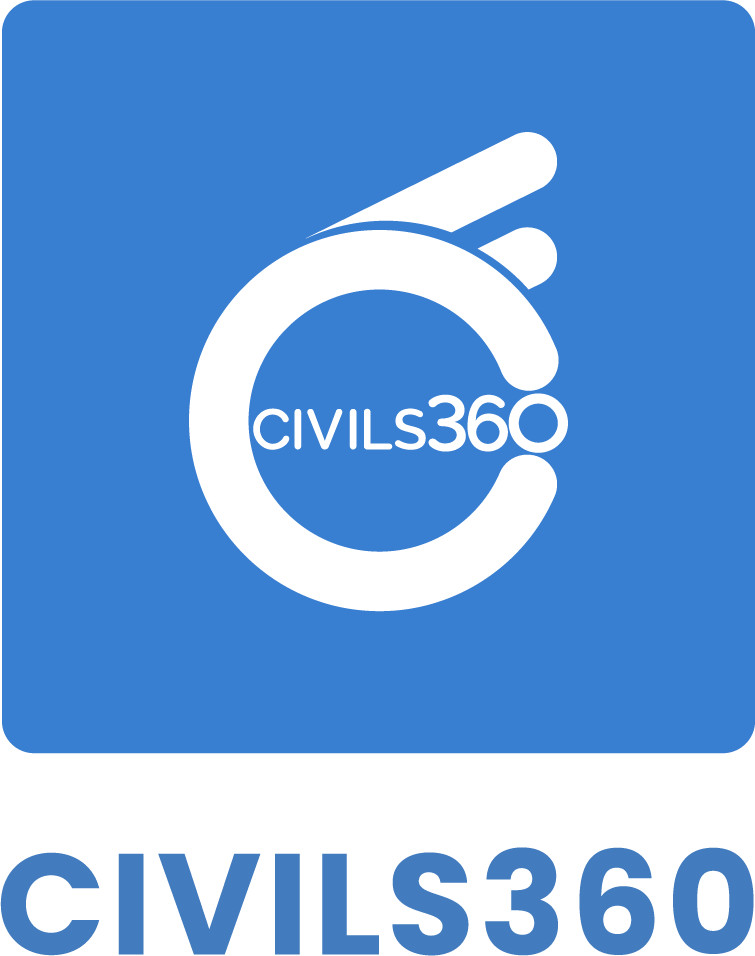
UPSC Mains Answer Writing Practice GS 3 -Test 13
Check All Mains Questions
1. Critically analyse the role played by pressure group in Indian democracy. Do you think formal recognition of pressure groups can increase their efficacy? (10 Marks)
Answer: Pressure groups are those interest groups joined together by a common interest or objective and who adopts different pressure tactics such as extra constitutional methods to pursue their goals. Eg: FICCI, INTUC etc.
Role played by pressure groups in Indian democracy:
● Influence the legislative, executive and financial policy of the government. Eg: Bank Unions fight for their rights where as Kisan Sabhas safeguard interests of farmers.
● Able to raise public awareness of matters affecting their interests or cause. Eg: All Out- a pressure group working for the rights of LGBT community.
● Tries to cleanse the political parties from corruption , enhance the intra party democracy by constantly publishing reports and statistics related to them. Eg: Association for Democratic Reforms which work to reduce criminalisation of politics in India.
● Remind Parliament about the importance of issues that public believe to be important. Eg: Environmental pressure groups like Narmada Bachao Andolan.
● Improve the transparency in governance and enhances the flow of information from the government to the people through the activities of pressure groups. Eg: Mazdoor Kisan Shakthi Sangathan and the enactment of RTI. Yet, there are certain issues associated with them that hinder their role in upholding the ideals of Indian democracy:
● Non-formal pressure groups are formed only to spread the ideologies of their parent political party.
● Single issue groups are emerging rapidly in India which cause chaos and a lack of law and public order in the society.
● Groups formed on the basis of caste destroy the independent fight of people to remove the caste system from politics.
● Passionate members in the pressure groups often resort to illicit behaviours like criminal activities, violence etc. affecting the peace and security.
● Pressure groups are ideally required to exert influence on political process, yet they become tools to subserve political interests in India.
The pressure groups play important role in political development. They fight for the democracy. It is necessary to give them a formal recognition to increase its efficacy because such a recognition gives it legitimacy to involve in the affairs of people and become the voice of people.
2. What is citizen charter?Analyse their success in ensuring transparency and accountability of government institutions. (10 Marks)
Answer: Citizen’s Charter is a document which represents a systematic effort to focus on the commitment of the Organisation towards its Citizens in respects of Standard of Services, Information, Choice and Consultation, Grievance Redress and Value for Money. It was institutionalised in the year 1997 during the Chief Minister’s Conference.
It is a vital tool to ensure transparency and accountability in administration:
● Citizen’s Charter aims to empower the citizen in relation to public service delivery with a clear understanding of service delivery standards, including timetables, user fees for services, and options for grievance redress.
● It provides a shift from rules based administration into citizen centric administration as envisaged by the Administrative Reforms Commission.
● It gives the list of Vision and Mission Statement of the Organisation as well. Therefore, the services which are provided will be enlisted in the Charter making the bureaucrats accountable for their actions.
● It takes the expectations of the clients or citizens as well. Therefore, the Charter will have met the demands of citizens which ensure speedier delivery of service.
However, it faces certain challenges while ensuring transparency and accountability such as:
● Citizen Charter does not have statutory status, and thus any non compliance with the charter does not guarantee immediate actions.
● In majority of cases Charters were not formulated through a consultative process.
● By and large service providers are not familiar with the philosophy, goals and main features of the Charter.
● Languages in the Charter are mainly in English itself, thus making it inaccessible for a major set of population across the country
● Adequate publicity has not been given to the Charters. In most Departments, the Charters were only in the early stages of implementation.
● No funds were specifically earmarked for awareness generation on Citizen’s Charter or for orientation of the staff on various components of the Charter.
Inorder to make the Charter more effective, certain steps such as delegation of powers to the staff, setting up systems for feedback and independent scrutiny etc. are necessary.
3. “Representation of people’s act is a pivotal cog in ensuring smooth functioning of election machinery”.Critically analyse (10 Marks)
Answer: Representation of People’s Act 1950 and 1951 deal respectively with the laws related to allocation of seats, delimitation of constituencies and the conduct of election of the Houses of Parliament and State Legislatures. It is the legal mechanism which helps the Election Commission of India to discharge a free and fair election in India.
RoPA- A pivotal cog in conduct of free and fair elections:
• It provides for the allocation of seats and delimitation of constituencies for the election in Parliament and State Legislatures.
• It gives a definite organisation structure in the conduct of elections where the ECI is assisted by the officers such as Chief electoral officers, District election officers, Electoral Registration officers etc.
• The preparation of electoral rolls for the conduct of elections are mandated in this Act as well.
• In addition to that, it deals with the procedures to file election disputes in case of any disagreements over the results.
• It clearly specifies the conditions under which the election candidates will be disqualified. Such conditions are necessary to reduce the criminalisation of politics, booth capture etc.
• It deals in detail with the registration of political parties, gives the access to accept contributions etc
However, the implementation of RoPA faces certain challenges as well in ensuring free and fair elections:
• Association for Democratic Reforms has reported a clear crime-politics nexus which indicate malpractises during elections.
• It is not yet able to solve the issues of booth capture, freebies during elections, the extravagant spending of black money during elections etc.
• Often elections and its outcomes are determined by the caste and vote banks associated with them.
• The intra party democracy is still very opaque in nature, RoPA cannot ensure in improving it. Also, the percentage of women candidates are very low in India compared to other countries.
The recent directives of Supreme Court in Abhiram Singh case, Lily Thomas Case etc. try to overcome the deficiencies associated with the conduct of election machinery in India. These steps need to be strictly enforced by the executive agencies to maintain transparency in elections.
DOWNLOAD Full Answer key
Enroll today with the best civils service academy and take your first step towards your Civils journey.
Feel free to reach out to us for any inquiries, collaborations, or support. We’re here to help.

